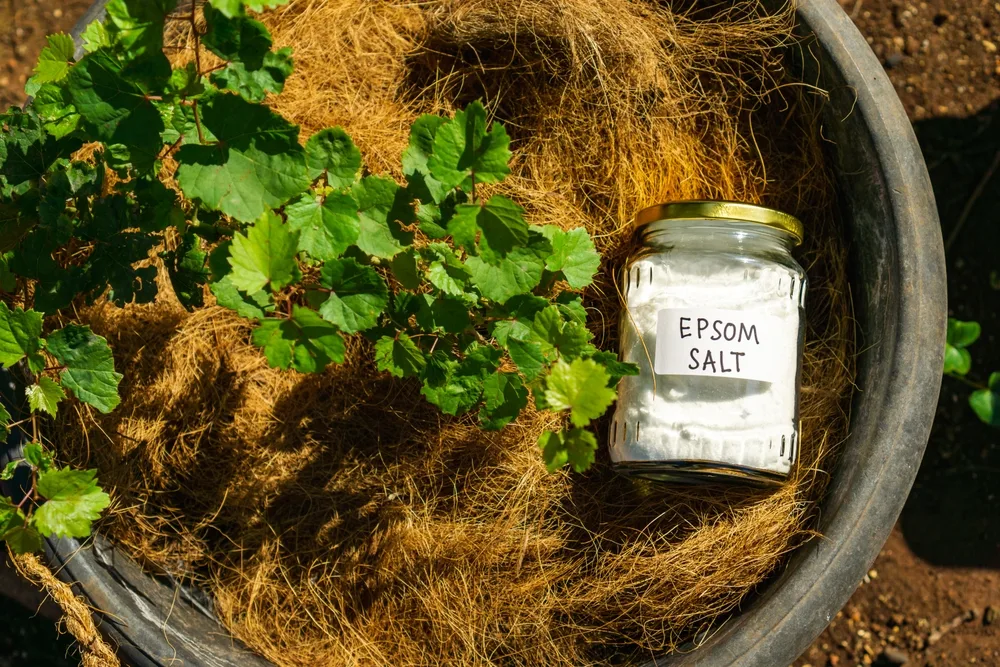Magnesium sulfate, commonly known as Epsom salt, is a naturally occurring mineral compound renowned for its diverse benefits in medicine, beauty care, and household cleaning.
It holds a special place in gardening circles as a versatile aid that offers significant advantages for plants and soil.

While it doesn’t offer universal solutions, Epsom salt is an effective supplement that can substantially enhance plant and soil well-being.
Essential for plant growth, magnesium and sulfur, the core components of Epsom salt, play pivotal roles in fostering soil fertility and supporting vital plant functions.
1. Enriching Soil Health
Epsom salt enriches the soil by supplying essential magnesium and sulfur, vital nutrients for plant development. These nutrients support photosynthesis, enzyme production, and overall plant vigor.
Magnesium is especially critical for chlorophyll formation, enabling plants to harness sunlight for energy.
2. Boosting Seed Germination
Introducing Epsom salt to the soil during seed planting can enhance seed germination. Magnesium reinforces seedling cell walls, promoting robust and healthy growth and laying a solid foundation for future plant development.
3. Facilitating Nutrient Absorption
Magnesium fosters an environment conducive to optimal nutrient uptake, ensuring efficient assimilation of crucial elements like nitrogen, phosphorus, and sulfur. This aids in preventing nutrient deficiencies and promoting vigorous plant growth.
4. Alleviating Transplant Shock
Epsom salt application around newly transplanted plants can mitigate transplant shock, encouraging rapid recovery and new growth.
5. Natural Pest Deterrent
While not a complete pest control solution, Epsom salt can deter certain pests. Sprinkling it around plant bases can discourage pests like slugs and snails, offering a chemical-free pest management option.
6. Enhancing Flower and Fruit Production
Epsom salt application can enhance flower and fruit production during flowering periods, leading to larger blooms and increased fruit yield. Magnesium plays a crucial role in fruit development, improving overall productivity.
7. Promoting Lush Lawns
Epsom salt can enhance lawn color, promoting a vibrant green appearance. By aiding chlorophyll production, it fosters robust grass growth, making lawns more resilient to foot traffic and weed invasion.
Proper application methods and timing are crucial to maximize the benefits of Epsom salt in gardening. Whether used as a foliar spray or applied directly to the soil, it should complement a comprehensive gardening regimen, including adequate watering, mulching, and organic matter incorporation.
Prioritize soil testing to ensure balanced nutrient levels, as excessive magnesium can harm plant and soil health. Moderation and tailored approaches based on specific plant requirements are key to successful Epsom salt utilization.
In conclusion, Epsom salt is a versatile ally in gardening, offering myriad benefits for plant health and productivity. With thoughtful application and informed practices, it can unlock gardens’ full potential, enriching the gardening experience for enthusiasts seeking flourishing green spaces.
